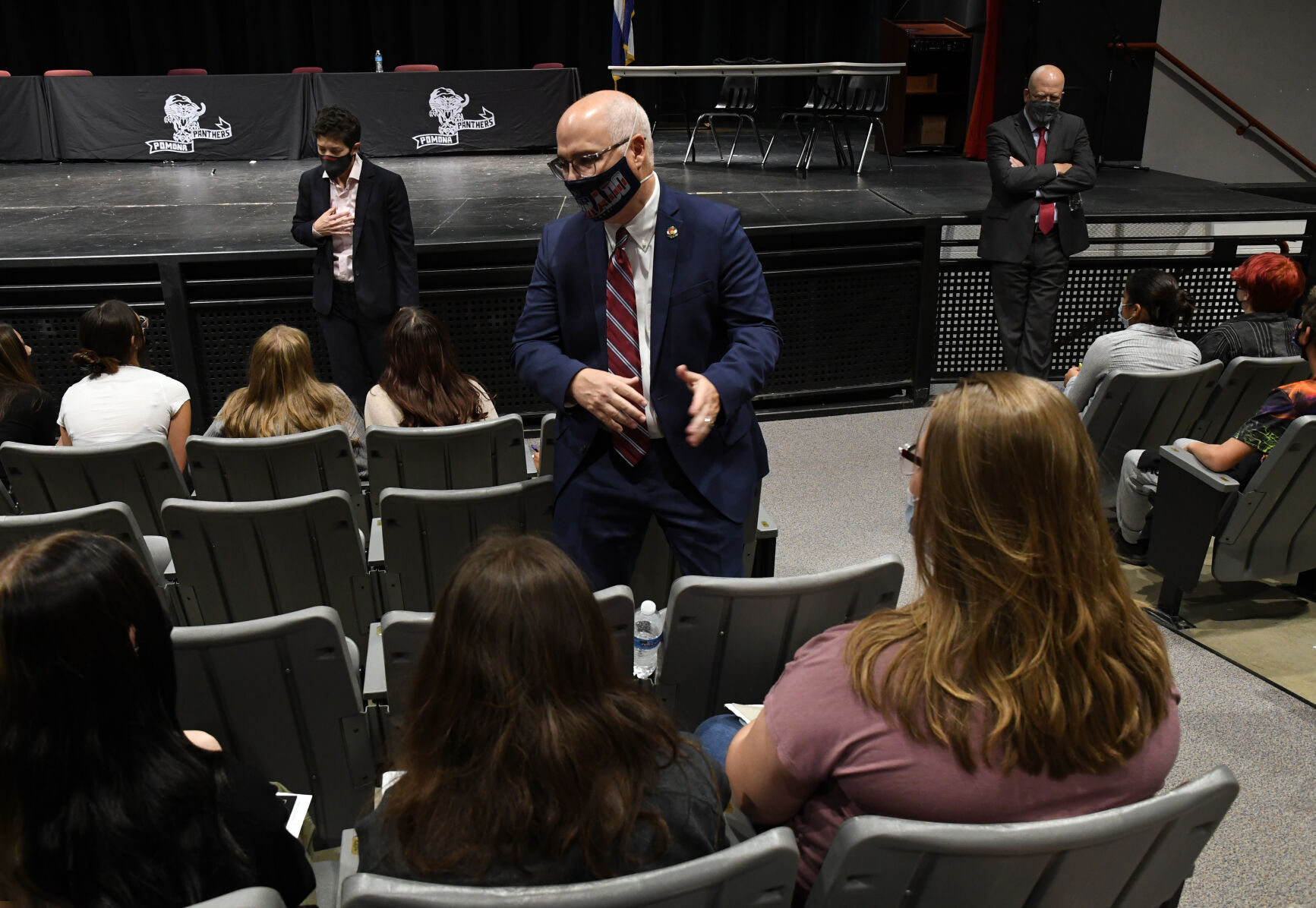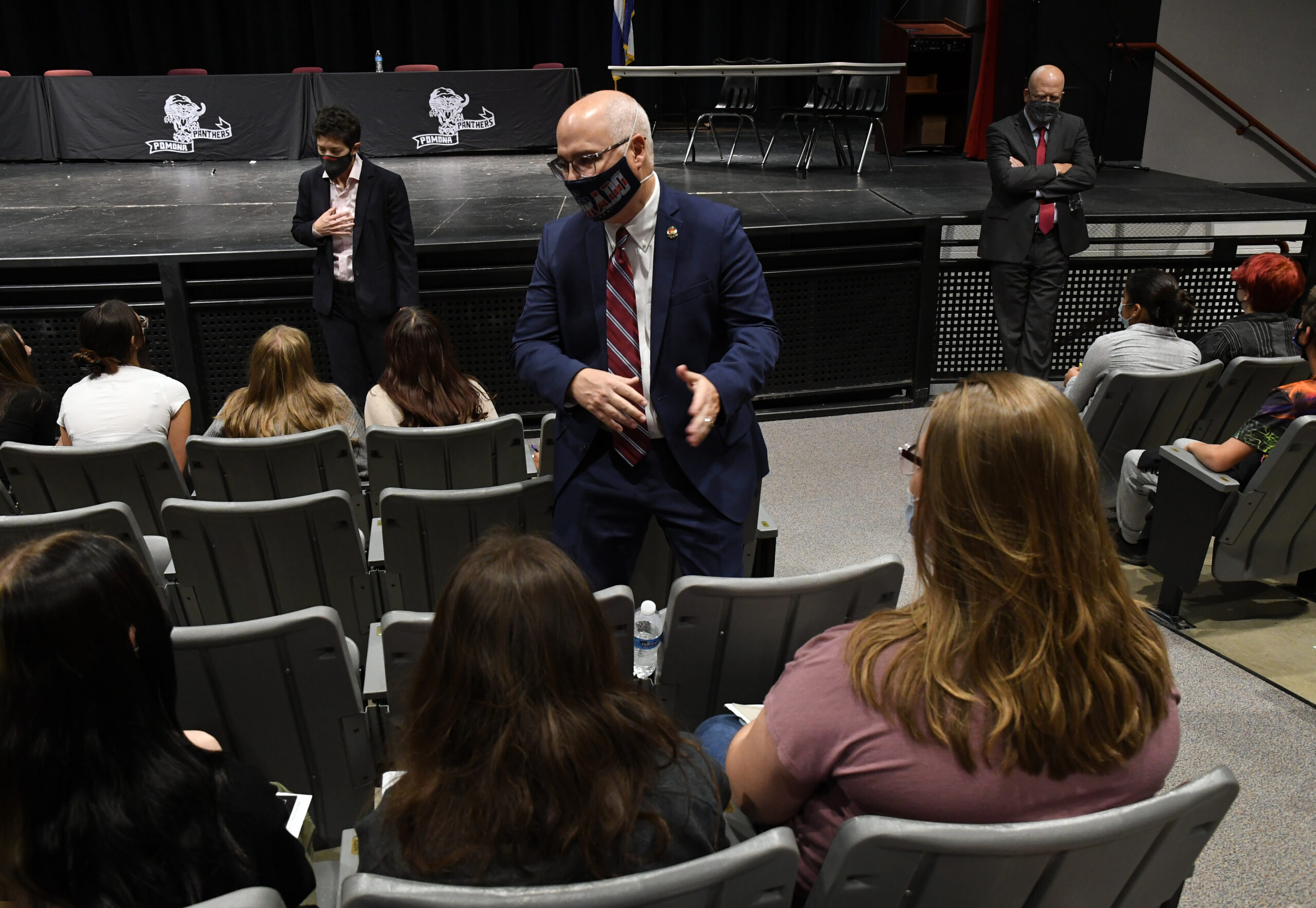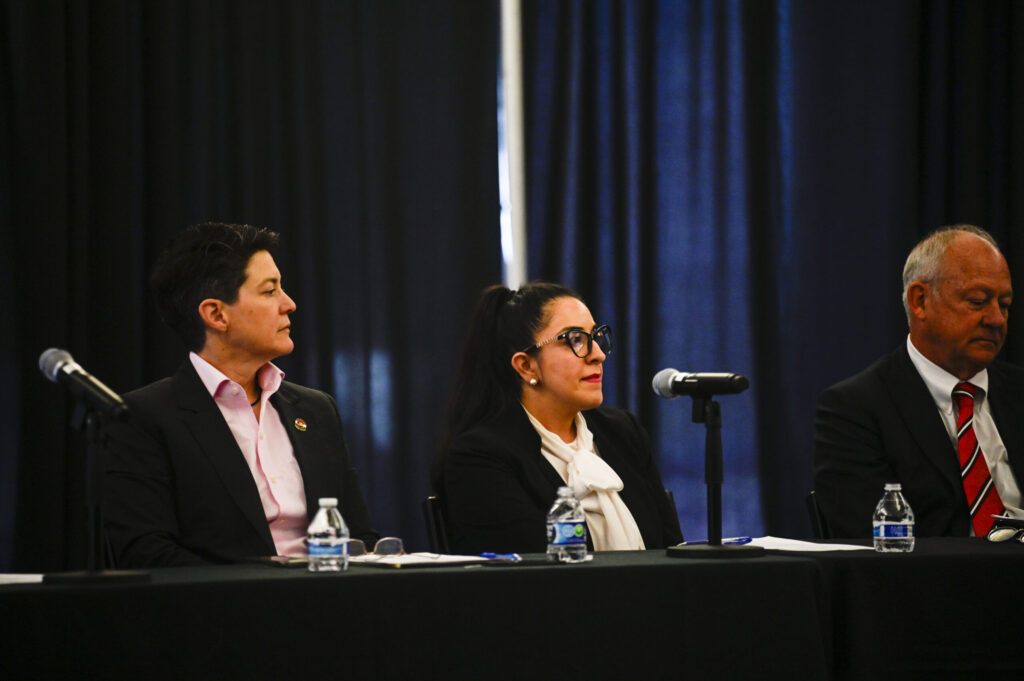State Supreme Court rules officers had more than ‘hunch’ to detain suspected drug distributor

Officers who conducted extended surveillance of a suspected drug distributor in Larimer County had reasonable suspicion to detain and search him, the Colorado Supreme Court ruled on Monday, reversing a trial court judge who believed police were operating solely on a “hunch.”
District Court Judge Stephen J. Jouard agreed last year to suppress drug evidence uncovered during a search of Marcelino Andrade Moreno’s backpack. Law enforcement did not have reasonable suspicion of criminal activity to justify stopping the vehicle Moreno was riding in, Jouard decided. Violations of the Fourth Amendment, which generally prohibits warrantless searches and seizures, require that evidence be excluded from trial when police obtain it unlawfully.
The Supreme Court, while deeming it “problematic” that law enforcement sat on an anonymous tip for three months before initiating their surveillance, nonetheless concluded the combination of the tip and several strange behaviors from Moreno gave police the grounds to believe that criminal activity was afoot.
“To be sure, any one of these facts by itself would be insufficient to give rise to reasonable suspicion,” wrote Chief Justice Brian D. Boatright in the April 25 opinion. “But taken together, the facts and the rational inferences that could be drawn from them established reasonable suspicion to believe that Moreno was carrying illegal drugs.”
The criminal case against Moreno originated in mid-January 2021 after the Northern Colorado Drug Task Force received an anonymous but detailed tip claiming that a married couple at a Berthoud home were dealing drugs. The tip contained the address of the home, a description of the couple, the location of specific drugs inside the house and an allegation that the couple sold mainly from the mailbox.
Reportedly, due to the volume of cases, it took until April 23, 2021 for police to conduct surveillance of the house, where Cruz Alarcon and Sarah Sewolt lived, according to prosecutors. Before Moreno arrived at the house that day, police allegedly stopped someone else who had visited and found no drugs.
Moreno then came to the home in a pickup truck with a female driver. While the unnamed woman waited in the driveway with the truck, Moreno got out to greet Alarcon. The two men walked into a toolshed where officers had previously observed Sewolt transporting gardening tools. A few minutes later, Moreno and Alarcon exited the shed empty-handed and Moreno left with the woman.
Detective Josiah Thiemann, who was conducting the surveillance, believed Moreno was acting suspiciously. Sheriff’s Deputy Kyle Ryan followed Moreno’s truck as it left, and he alleged that Moreno paid an unusual amount of attention to him. Moreno’s focus on the deputy “exceeded anything I have ever seen,” Ryan said.
After tailing the truck for 12 minutes, Ryan saw it park a truck stop’s gas pump. Instead of filling up the tank, Moreno and the woman went into the truck stop. After returning, they moved the truck to the air pump. While Moreno held the air compressor and circled the truck, he did not put air in the tires, instead focusing on Ryan’s patrol car. Ryan eventually left the truck stop.
Meanwhile, Thiemann saw Alarcon and Sewalt leave the house and he followed them to the truck stop. Moreno exited his truck with a backpack, got into the second vehicle, and drove off with Alarcon and Sewalt. Ryan stopped the car and summoned a drug-detection dog. The dog alerted to Moreno’s backpack, where police found methamphetamine and opioid pills.
Prosecutors charged Moreno with the possession of a controlled substance with an intent to distribute. Moreno moved to suppress evidence of the drugs found in the backpack, alleging that police did not have reasonable suspicion he was involved in criminal activity at the time.
Jouard, the trial judge, agreed with the defense. The information from the anonymous tip was “stale” by the time officers had gotten around to the surveillance, and the observations by Thiemann and Ryan, in Jouard’s view, were not specific enough to any potential crime.
“While the observations may have provided the officers with an intuition or hunch of criminal activity, that is insufficient,” he wrote in September. After the prosecution asked Jouard to reconsider, he declined, clarifying that even accounting for everything the officers knew, beginning with the anonymous tip and ending with the truck stop behavior, there was no reasonable suspicion.
The Eighth Judicial District Attorney’s Office appealed directly to the Supreme Court, bypassing the state’s Court of Appeals, as is the protocol for prosecutors challenging a suppression decision by a trial judge. Deputy District Attorney Michael Deschenes argued that police are not required to reject innocent explanations for certain behaviors before they can arrive at reasonable suspicion. Meeting a person in a toolshed, parking at a gas pump but not using gas, and walking around a car with an air compressor were all potentially benign activities – but also suspicious.
“What is unclear is what the lower court considers an intuition versus a suspicion grounded in reasonable inferences,” Deschenes wrote. “The only guidance the lower court provides is that Detective Thiemann’s surveillance did not uncover an open air, daylight drug deal.”
Moreno countered that after receiving the tip, police had seemingly never corroborated whether any drug activity was actually happening at the Berthoud house before conducting their surveillance. After all, the officers reportedly stopped another visitor to the house prior to Moreno and found no narcotics.
The Supreme Court acknowledged that the “possible staleness of the tip is problematic,” but everything that Thiemann and Ryan saw subsequent to Moreno’s arrival at the house produced seemingly no “legitimate” explanation.
“In our view, the officers reasonably inferred that Moreno was merely trying to look like he was engaging in normal activities,” Boatright wrote for the court. The justices reversed the suppression order and returned the case to the trial court.
The case is People v. Moreno.














